A
Adventure MX
Guest
I always find that taking bends or sweeps on a dust road can lead to some nervous moments especially if you have the wrong speed and angle. Sometimes it feels like my wheels drift over the road and other times I just canâ??t seem to get my â??rhythmâ? in taking the bends at speed. But as with time and plenty of riding you seem to hone your skills and you get better the more you do. So I thought I would share some tips and perhaps the rest of you could fill in where I have left out.
Alright let me see if I can get this right. The object of the exercise is to maintain grip while having your weight exert a downward energy perpendicular to the surface of the road. The pictures below show a basic riding position on a normal loose/gravel surface.
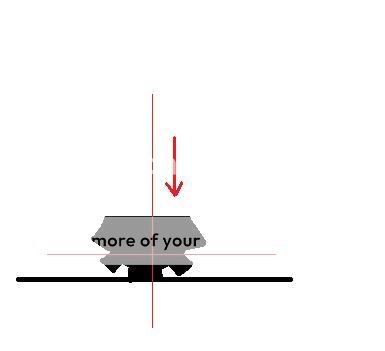

So when the road has an off camber to the right you would naturally lean the bike to roughly the same degree as the camber in order to maintain the perpendicular energy to the road surface as shown in the figures below:
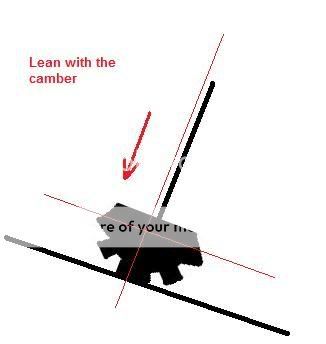
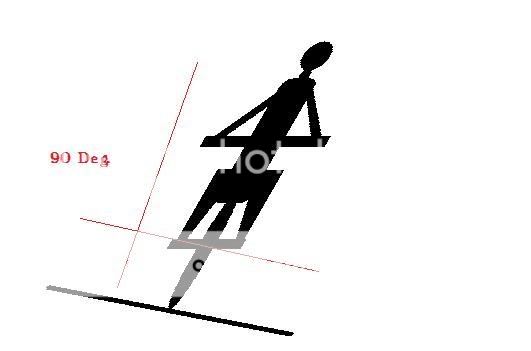
The trick of it comes in when one does not have a camber to lean into but the surface is level or it has an off camber to the opposite side to which the road bends. As far as I understand it, the theory is, you need to lean the bike into the bend while you remain upright in order to ensure that you exert a downward force so that your wheels do not slide out from under you. You want to position yourself slightly forward putting some weight on the front wheel so that you get maximum grip. This will then give you the ability to throttle through the corner/bend. If the back wheel tends to slide out somewhat you just give a little more consistent throttle to ensure you power through the bend. You donâ??t want to give to much power as you could loose it and find yourself doing a massive slide out and loosing control.
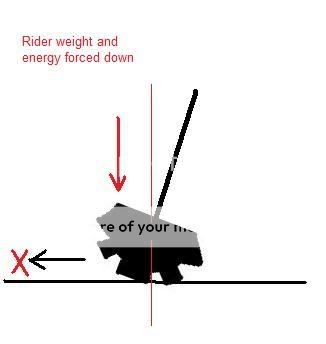
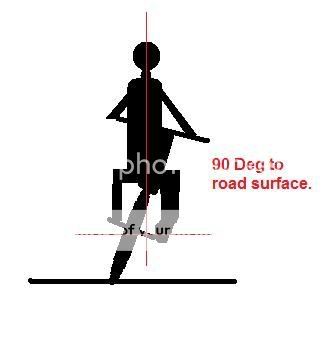
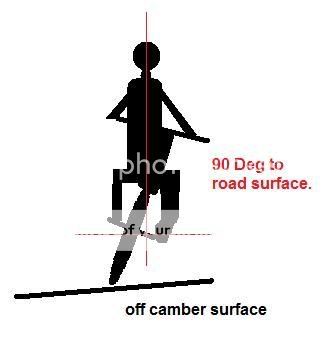
The picture below demonstrates the fact that if you are on a loose level surface and you lean your bike, the downward energy is forced laterally causing you to slide out far easilier had the energy been exerted downwards perpendicular to the surface.
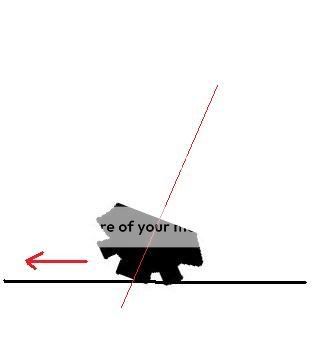
So, in short it is about being able to apply the downward energy in relation to the level of the surface in order to ensure maximum grip without loosing lateral movement and apply the position of your weight to the speed at which you take the bend.
Alright let me see if I can get this right. The object of the exercise is to maintain grip while having your weight exert a downward energy perpendicular to the surface of the road. The pictures below show a basic riding position on a normal loose/gravel surface.


So when the road has an off camber to the right you would naturally lean the bike to roughly the same degree as the camber in order to maintain the perpendicular energy to the road surface as shown in the figures below:


The trick of it comes in when one does not have a camber to lean into but the surface is level or it has an off camber to the opposite side to which the road bends. As far as I understand it, the theory is, you need to lean the bike into the bend while you remain upright in order to ensure that you exert a downward force so that your wheels do not slide out from under you. You want to position yourself slightly forward putting some weight on the front wheel so that you get maximum grip. This will then give you the ability to throttle through the corner/bend. If the back wheel tends to slide out somewhat you just give a little more consistent throttle to ensure you power through the bend. You donâ??t want to give to much power as you could loose it and find yourself doing a massive slide out and loosing control.



The picture below demonstrates the fact that if you are on a loose level surface and you lean your bike, the downward energy is forced laterally causing you to slide out far easilier had the energy been exerted downwards perpendicular to the surface.

So, in short it is about being able to apply the downward energy in relation to the level of the surface in order to ensure maximum grip without loosing lateral movement and apply the position of your weight to the speed at which you take the bend.




